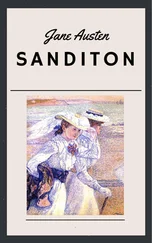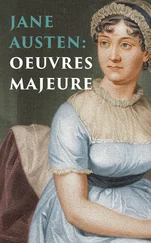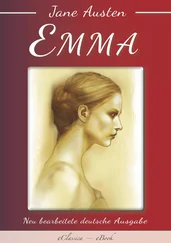Jane Austen - Collins Classics
Здесь есть возможность читать онлайн «Jane Austen - Collins Classics» — ознакомительный отрывок электронной книги совершенно бесплатно, а после прочтения отрывка купить полную версию. В некоторых случаях можно слушать аудио, скачать через торрент в формате fb2 и присутствует краткое содержание. Жанр: unrecognised, на английском языке. Описание произведения, (предисловие) а так же отзывы посетителей доступны на портале библиотеки ЛибКат.
- Название:Collins Classics
- Автор:
- Жанр:
- Год:неизвестен
- ISBN:нет данных
- Рейтинг книги:5 / 5. Голосов: 1
-
Избранное:Добавить в избранное
- Отзывы:
-
Ваша оценка:
- 100
- 1
- 2
- 3
- 4
- 5
Collins Classics: краткое содержание, описание и аннотация
Предлагаем к чтению аннотацию, описание, краткое содержание или предисловие (зависит от того, что написал сам автор книги «Collins Classics»). Если вы не нашли необходимую информацию о книге — напишите в комментариях, мы постараемся отыскать её.
Collins Classics — читать онлайн ознакомительный отрывок
Ниже представлен текст книги, разбитый по страницам. Система сохранения места последней прочитанной страницы, позволяет с удобством читать онлайн бесплатно книгу «Collins Classics», без необходимости каждый раз заново искать на чём Вы остановились. Поставьте закладку, и сможете в любой момент перейти на страницу, на которой закончили чтение.
Интервал:
Закладка:
Delighted to have such good news for Mr. and Mrs. Parker, who had both gone home some time before, she proceeded to Trafalgar House with as much alacrity as could remain after having contended for the last two hours with a very fine wind blowing directly on shore. But she had not reached the little lawn when she saw a lady walking nimbly behind her at no great distance; and convinced that it could be no acquaintance of her own, she resolved to hurry on and get into the house if possible before her. But the stranger’s pace did not allow this to be accomplished. Charlotte was on the steps and had rung, but the door was not opened, when the other crossed the lawn—and when the servant appeared, they were just equally ready for entering the house.
The ease of the lady, her “How do you do, Morgan?” and Morgan’s looks on seeing her, were a moment’s astonishment; but another moment brought Mr. Parker into the hall to welcome the sister he had seen from the drawing room; and Charlotte was soon introduced to Miss Diana Parker. There was a great deal of surprise but still more pleasure in seeing her. Nothing could be kinder than her reception from both husband and wife. How did she come? And with whom? And they were so glad to find her equal to the journey! And that she was to belong to them was taken as a thing of course.
Miss Diana Parker was about four and thirty, of middling height and slender; delicate looking rather than sickly; with an agreeable face and a very animated eye; her manners resembling her brother’s in their ease and frankness, though with more decision and less mildness in her tone. She began an account of herself without delay. Thanking them for their invitation but “ that was quite out of the question for, they were all three come and meant to get into lodgings and make some stay.”
“All three come! What! Susan and Arthur! Susan able to come too! This is better and better.”
“Yes, we are actually all come. Quite unavoidable. Nothing else to be done. You shall hear all about it. But my dear Mary, send for the children, I long to see them.”
“And how has Susan born the journey? And how is Arthur? And why do we not see him here with you?”
“Susan has born it wonderfully. She had not a wink of sleep either the night before we set out or last night at Chichester, and as this is not so common with her as with me , I have had a thousand fears for her. But she has kept up wonderfully—no hysterics of consequence till we came within sight of poor old Sanditon and the attack was not very violent—nearly over by the time we reached your hotel so that we got her out of the carriage extremely well, with only Mr. Woodcock’s assistance. And when I left her she was directing the disposal of the luggage and helping old Sam uncord the trunks. She desired her best love with a thousand regrets at being so poor a creature that she could not come with me. And as for poor Arthur, he would not have been unwilling himself, but there is so much wind that I did not think he could safely venture for I am sure there is lumbago hanging about him; and so I helped him on with his great coat and sent him off to the Terrace to take us lodgings. Miss Heywood must have seen our carriage standing at the hotel. I knew Miss Heywood the moment I saw her before me on the down. My dear Tom, I am so glad to see you walk so well. Let me feel your ankle. That’s right; all right and clean. The play of your sinews a very little affected, barely perceptible. Well, now for the explanation of my being here. I told you in my letter of the two considerable families I was hoping to secure for you, the West Indians and the seminary.”
Here Mr. Parker drew his chair still nearer to his sister and took her hand again most affectionately as he answered, “Yes, yes, how active and how kind you have been!”
“The West Indians,” she continued, “whom I look upon as the most desirable of the two, as the best of the good, prove to be a Mrs. Griffiths and her family. I know them only through others. You must have heard me mention Miss Capper, the particular friend of my very particular friend Fanny Noyce. Now, Miss Capper is extremely intimate with a Mrs. Darling, who is on terms of constant correspondence with Mrs. Griffiths herself. Only a short chain, you see, between us, and not a link wanting. Mrs. Griffiths meant to go to the sea for her young people’s benefit, had fixed on the coast of Sussex, but was undecided as to the where, wanted something private, and wrote to ask the opinion of her friend, Mrs. Darling. Miss Capper happened to be staying with Mrs. Darling when Mrs. Griffiths’ letter arrived and was consulted on the question. She wrote the same day to Fanny Noyce and mentioned it to her; and Fanny, all alive for us , instantly took up her pen and forwarded the circumstance to me, except as to names —which have but lately transpired. There was but one thing for me to do. I answered Fanny’s letter by the same post and pressed for the recommendation of Sanditon. Fanny had feared your having no house large enough to receive such a family. But I seem to be spinning out my story to an endless length. You see how it was all managed. I had the pleasure of hearing soon afterwards, by the same simple link of connection, that Sanditon had been recommended by Mrs. Darling, and that the West Indians were very much disposed to go thither. This was the state of the case when I wrote to you. But two days ago—yes, the day before yesterday—I heard again from Fanny Noyce, saying that she had heard from Miss Capper, who by a letter from Mrs. Darling understood that Mrs. Griffiths had expressed herself in a letter to Mrs. Darling more doubtingly on the subject of Sanditon. Am I clear? I would be anything rather than not clear.”
“Oh, perfectly, perfectly. Well?”
“The reason of this hesitation was her having no connections in the place, and no means of ascertaining that she should have good accommodations on arriving there; and she was particularly careful and scrupulous on all those matters, more on account of a certain Miss Lambe, a young lady—probably a niece—under her care, than on her own account, or her daughters’. Miss Lambe has an immense fortune, richer than all the rest, and very delicate health. One sees clearly enough by all this the sort of woman Mrs. Griffiths must be: as helpless and indolent as wealth and a hot climate are apt to make us. But we are not born to equal energy. What was to be done? I had a few moments’ indecision, whether to offer to write to you, or to Mrs. Whitby, to secure them a house; but neither pleased me. I hate to employ others when I am equal to act myself; and my conscience told me that this was an occasion which called for me. Here was a family of helpless invalids whom I might essentially serve. I sounded Susan. The same thought had occurred to her. Arthur made no difficulties. Our plan was arranged immediately, we were off yesterday morning at six, left Chichester at the same hour today, and here we are.”
“Excellent! Excellent!” cried Mr. Parker. “Diana, you are unequalled in serving your friends and doing good to all the world. I know nobody like you. Mary, my love, is not she a wonderful creature? Well, and now, what house do you design to engage for them? What is the size of their family?”
“I do not at all know,” replied his sister, “have not the least idea, never heard any particulars; but I am very sure that the largest house at Sanditon cannot be too large. They are more likely to want a second. I shall take only one, however, and that but for a week certain. Miss Heywood, I astonish you. You hardly know what to make of me. I see by your looks that you are not used to such quick measures.”
Читать дальшеИнтервал:
Закладка:
Похожие книги на «Collins Classics»
Представляем Вашему вниманию похожие книги на «Collins Classics» списком для выбора. Мы отобрали схожую по названию и смыслу литературу в надежде предоставить читателям больше вариантов отыскать новые, интересные, ещё непрочитанные произведения.
Обсуждение, отзывы о книге «Collins Classics» и просто собственные мнения читателей. Оставьте ваши комментарии, напишите, что Вы думаете о произведении, его смысле или главных героях. Укажите что конкретно понравилось, а что нет, и почему Вы так считаете.












